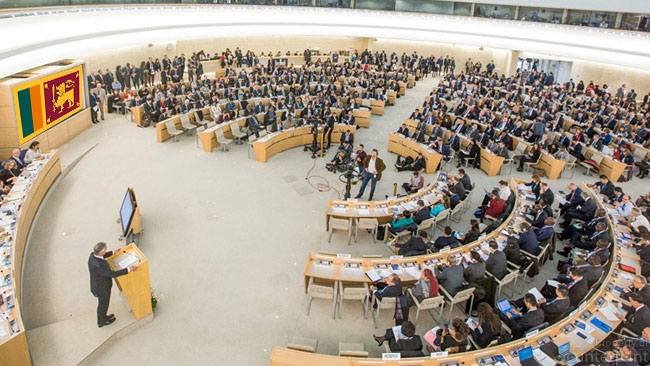Accountability is central to secure Sri Lanka’s present and future, said Nada Al-Nashif, the United Nations Deputy High Commissioner for Human Rights on Monday (11).
“While it remains the obligation of the Sri Lankan authorities to acknowledge past violations and undertake credible accountability measures, this Council and the Member States can play an important and complementary role in advancing accountability,” she said during the 54th session of UN Human Rights Council in Geneva.
She said that delays in holding local government elections and in reconstituting Provincial Councils under the 13th amendment have limited people’s right to political participation and the free expression of voters.
She said that the Government economic recovery policies should be guided by its obligations under the International Covenant on Economic, Social and Cultural Rights to protect the most vulnerable.
The international community, including international financial institutions, should keep supporting Sri Lanka in its recovery, in line with obligations around international cooperation and assistance, by providing the fiscal space needed while pressing for genuine progress in governance, transparency and accountability, she said.
She went on to note that the measures restricting the right to protest will only generate more tension in the country as they prevent people from expressing their grievances and engaging in critical debate.
Truth-seeking alone will not be sufficient and must be accompanied by a clear commitment to accountability, including through an independent ad hoc special court, she said.
She said that the High Commissioner has repeatedly recommended the Government of Sri Lanka to establish a follow-up, independent and transparent investigation into the Easter Sunday attacks with international assistance and the full participation of victims and their representatives.
“The report provides an analysis of concerns with some forthcoming legislation, in particular the proposed Anti-Terrorism Bill that will replace the Prevention of Terrorism Act (PTA) and the new law to regulate media broadcasting. It urges a moratorium on the use of the PTA in the meantime, and for the review of long-standing PTA cases to be expedited,” she added.


